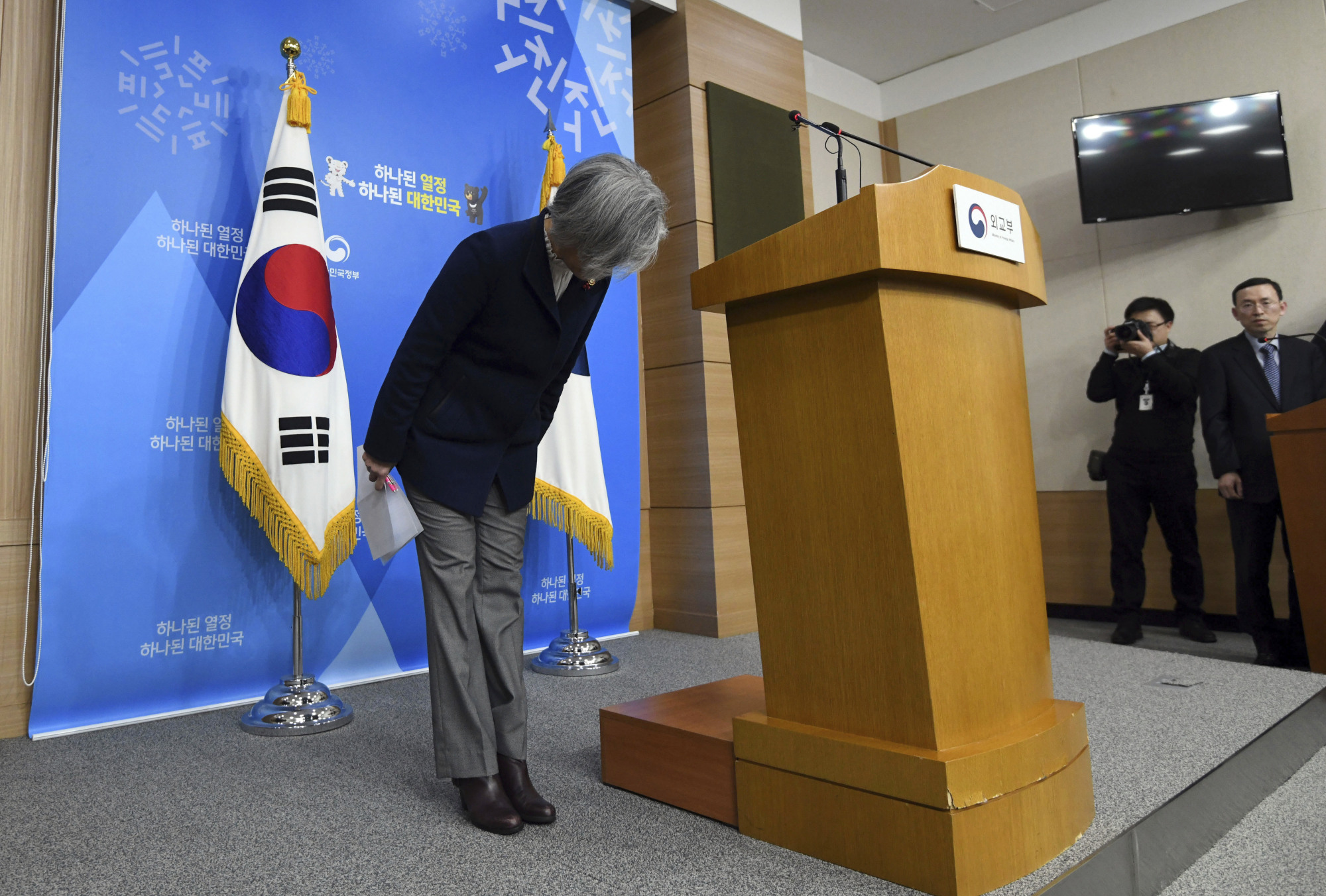Can an international deal ever really be final? U.S. President Donald Trump seems to think the answer is "no," given his penchant for withdrawing from agreements made under President Barack Obama — the Paris climate change accords, the Trans-Pacific Partnership on trade and (maybe) the Iranian nuclear deal.
But what about international agreements that actually declare themselves to be irreversible? That's the case with the 2015 Japan-South Korea deal that was aimed at ending once and for all the conflict between the countries over Korean "comfort women" forced into Japan's frontline brothels before and during World War II. The countries went so far as to say explicitly that "the issue is resolved finally and irreversibly."
Yet the two countries are now wrangling over the same issue again. A new South Korean president, Moon Jae-in, who belongs to a different party from his predecessor who signed the deal, is demanding a fresh apology. And Prime Minister Shinzo Abe is thinking about skipping the opening ceremonies at the Winter Olympics in Pyeongchang.


















With your current subscription plan you can comment on stories. However, before writing your first comment, please create a display name in the Profile section of your subscriber account page.